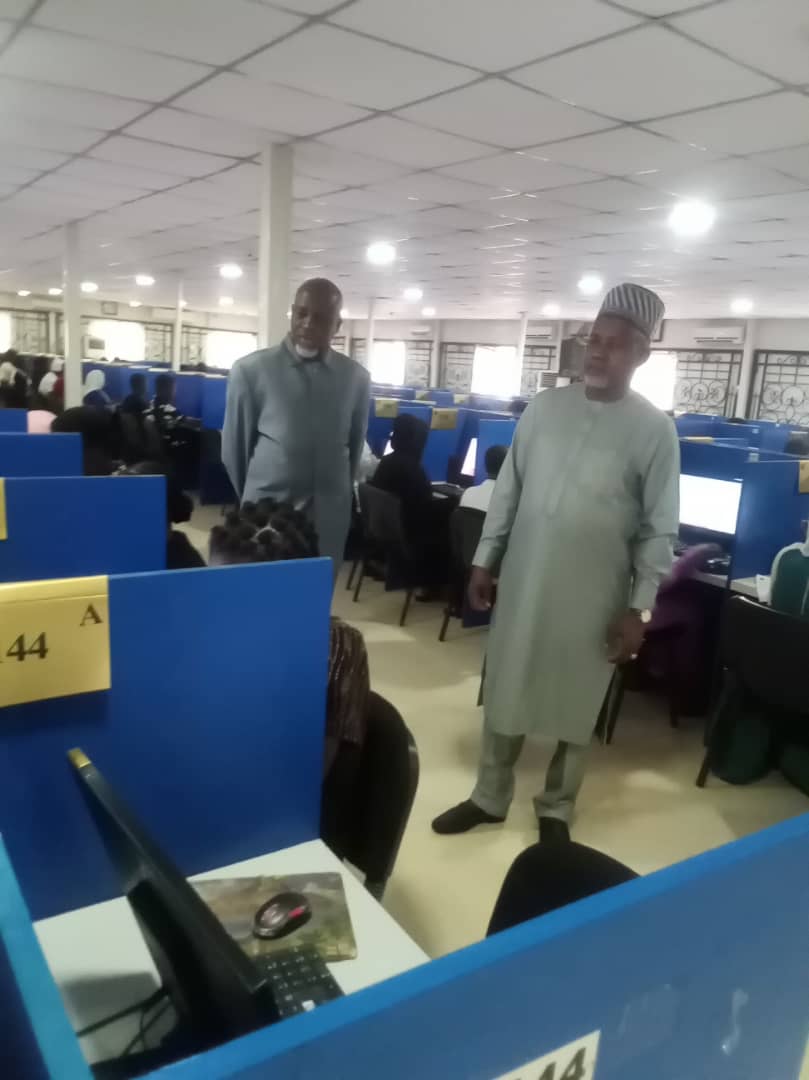By Felix Khanoba
The Federal Government says it will consider pegging the minimum age of admission seekers into the nation’s higher education institutions at 18 years.
Minister of Education, Professor Tahir Mamman, made this known on Monday after monitoring the ongoing Unified Tertiary Matriculation Examination (UTME) in Abuja.
Mamman, who was also at the Joint Admissions and Matriculation Board (JAMB) headquarters in Bwari-Abuja, where he met with its registrar, Prof. Is-haq Oloyede,
expressed worry over the issue of minors seeking admission to higher institutions across
Fielding questions from newsmen during the UTME monitoring exercise, the minister said underaged students are mentally unprepared for the herculean tasks of university education, expressing concern that he has seen 15-year-olds writing the examination.
Mamman equally blamed parents for putting undue pressure on their children to attend university at a very tender age.
“The other thing that we noticed is the issue of those who are applying to go to the universities. Some of them are really too young. We are going to look at this. They are too young to understand what university education is all about. And that’s a stage when students migrate from a controlled and uncontrolled environment where they are in charge of their own affairs,” Mamman said.
“If they are too young, they won’t be able to manage properly. And that accounts for some of the problems we are seeing in the universities. We are going to look at that.”
On what should be the minimum entry age, the minister said, “It is supposed to be 18 years old.” That is the entry age for universities. However, I have seen students aged 15 and 16 in examination centres. It is not good for them.
“And parents should be encouraged not to push their wards and children too much. It is mostly the pressure of parents that is causing this problem.”
He applauded the examination body for deploying technology to perfect the process.
This, he stressed, has minimally reduced cases of examination malpractice.
“Fantastic, very seamless process. I have seen the value of technology and how JAMB has been able to perfect this process here. Right from screening the students to the examination process, it’s so seamless. And the environment is very nice, comfortable for the students. And that’s how it should be, especially with the use of technology in our affairs and the educational system,” he noted.
On his part, the Minister of State for Education, Dr. Yusuf Sununu, who had earlier monitored the examination in JAMB Computer-Based Test (CBT) centres in Bwari, hailed the exam body for the smooth exercise.
Sununu, who hailed JAMB for the massive deployment of technology in the conduct of the exam, said the exam body has proven with online exams that many good things can be achieved, especially in eliminating examination malpractice.
“From what I have seen, I have seen a complete effort, most importantly to completely reduce to the barest minimum and eliminate examination malpractice. It has given the standard of what is needed to be given in an exam so that we can have objectivity and reliability of results.
“Right from where the candidates arrive, they will be seated comfortably in the waiting room, screened, and other necessary instructions will be given, and they will proceed to do their biometrics.”
He said that the board had made the examination simple in such a way that any candidate who could operate a smart phone would be able to write the exams without any aid/assistance.
“One of the major things I see here, which is a major characteristic of an online exam, is the speed. The speed in the centre is really excellent. Pages are turned on when candidates need them without any delay in booting,” Sununu said.
“I have not heard people complaining of answers leaked, it shows that with online exams, we can do a lot.
“The standard of the exam is commendable. I am not surprised that JAMB has to go outside Nigeria to conduct exams; they were in Saudi Arabia, and right now the exam is also going on in Saudi Arabia.”



